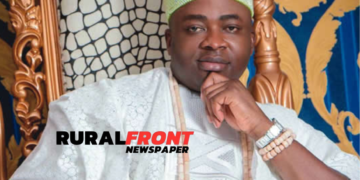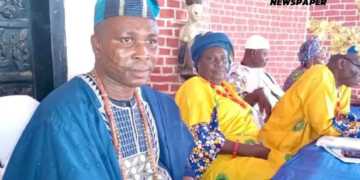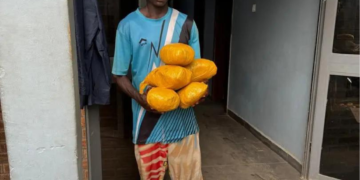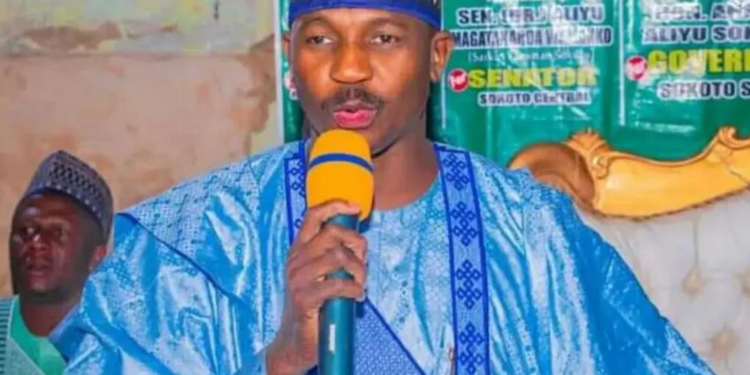As the dethronement of traditional rulers continues to generate controversies in Sokoto, the state Higher Court, sitting on Wednesday, issued an order restraining Governor Ahmed Aliyu from sacking two out of the 15 traditional rulers already removed by the government. This legal intervention has added another layer to the ongoing debate and unrest in the state.
The orders were sought separately by Alhaji Buhari Dahiru Tambuwal and Alhaji Abubakar Kassim, the District Heads of Tambuwal and Kebbe, respectively. These two leaders were among the 15 traditional rulers earlier removed by the Sokoto State government on allegations of insubordination and aiding insecurity in the state. The removal of these traditional rulers has sparked significant controversy and debate, both within Sokoto and across Nigeria.
Court’s Intervention
The presiding judge, Justice Kabiru Ibrahim Ahmed, ordered the Governor of Sokoto State, his Attorney General, and the Sokoto Sultanate Council to revert to the status quo pending the determination of the suit filed before him by the complainants. The complainants were represented by Prof. Ibrahim Abdullahi SAN, a senior advocate of Nigeria. This order is a significant development in the ongoing saga, as it temporarily halts the governor’s actions against the traditional rulers.
Justice Ahmed, through two separate orders, directed the defendants, their agents, servants, privies, or assigns, or any person acting on their behalf, to “maintain status quo and stay all actions and further actions in connection with all matters dealing with and or appertaining to the removal and or dethronement of District Heads in Sokoto State,” particularly those of Kebbe and Tambuwal. This directive is to remain in effect pending the hearing and determination of the motion for an interlocutory injunction duly filed by the two district heads before the court.
This legal intervention underscores the complexity and sensitivity of the issue at hand. The court’s decision to maintain the status quo highlights the need for a thorough and fair examination of the allegations and actions taken by the state government. It also reflects the importance of traditional institutions in the social and political fabric of Sokoto State.
The Governor’s Bill
This development comes in the wake of a bill presented to the state House of Assembly by the governor. The bill seeks to amend the state Local Government Law, affecting the appointment and disposition of district and village heads. It aims to confer on the governor exclusive powers to appoint and dethrone traditional rulers in the state. This proposed legislation has further fueled the controversy and debate surrounding the governor’s actions.
The sacking of 15 district heads and the proposed bill sent to the state Assembly have generated swift reactions and heated debate across the state and the country. The issue has drawn attention from various quarters, including political leaders, religious organizations, and civil society groups.
Reactions from Political Leaders
Vice President Kashim Shettima has weighed in on the matter, warning the Sokoto State Government to regard the Sultanate as an institution that must be respected, preserved, and protected. His statement underscores the significance of traditional institutions in maintaining social order and cultural heritage. The Vice President’s intervention reflects the broader national concern over the potential implications of the governor’s actions on the stability and integrity of traditional institutions.
Former Vice President and 2023 PDP presidential candidate, Atiku Abubakar, also reacted to the situation. He demanded that traditional institutions must be protected from the “excesses of state governors.” Atiku’s statement highlights the need for a balanced approach that respects the autonomy and authority of traditional rulers while ensuring accountability and good governance.
Concerns from Religious Organizations
The Muslim Rights Concern (MURIC) has issued two separate statements warning Governor Ahmed Aliyu to shelve the idea of removing the Sultan of Sokoto or whittling his powers. MURIC insists that the governor is targeting the monarch and planning to create a parallel Sultanate Council under the guise of the new law. This accusation adds another dimension to the controversy, suggesting that the governor’s actions may be motivated by political or personal interests rather than genuine concerns about governance and security.
MURIC’s statements reflect the broader concern among religious organizations about the potential impact of the governor’s actions on the stability and unity of the Muslim community in Sokoto. The organization has called for a more inclusive and consultative approach to addressing the issues at hand, emphasizing the need for dialogue and mutual respect.
Legislative Process
The Sokoto State Legislature has last Wednesday passed the bill to its second reading and referred the matter to a House Committee. This legislative process is a critical step in determining the future of the proposed amendments to the state Local Government Law. The committee’s deliberations and recommendations will play a crucial role in shaping the final outcome of the bill.
A public hearing on the controversial bill is scheduled for Tuesday next week. This public hearing provides an opportunity for stakeholders, including traditional rulers, community leaders, civil society organizations, and ordinary citizens, to voice their opinions and concerns about the proposed legislation. The outcome of the public hearing will be a key factor in determining the bill’s fate and its potential impact on the governance and stability of Sokoto State.
Broader Implications
The ongoing controversy in Sokoto highlights the broader challenges and complexities associated with the relationship between traditional institutions and modern state governance. Traditional rulers have historically played a vital role in maintaining social order, resolving conflicts, and preserving cultural heritage. However, their role and authority have often come into conflict with the powers and responsibilities of elected officials.
The situation in Sokoto underscores the need for a balanced and inclusive approach to governance that respects the autonomy and authority of traditional rulers while ensuring accountability and good governance. It also highlights the importance of dialogue and consultation in addressing contentious issues and finding mutually acceptable solutions.
Conclusion
The dethronement of traditional rulers in Sokoto and the subsequent legal and political developments have generated significant controversy and debate. The court’s intervention, the governor’s proposed bill, and the reactions from political leaders and religious organizations all reflect the complexity and sensitivity of the issue at hand.
As the situation continues to unfold, it is essential for all stakeholders to engage in constructive dialogue and work towards a solution that respects the autonomy and authority of traditional rulers while ensuring accountability and good governance.
























